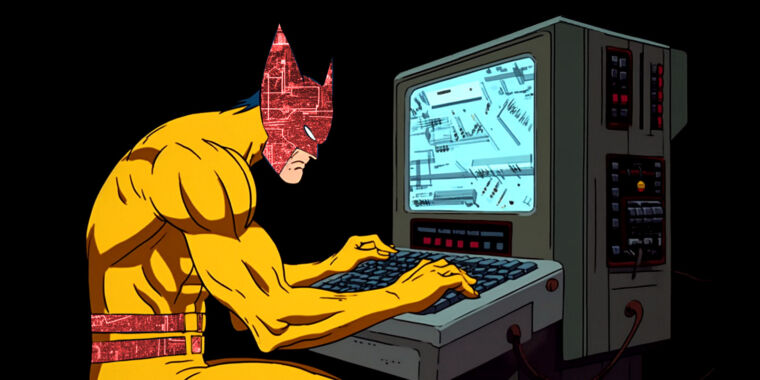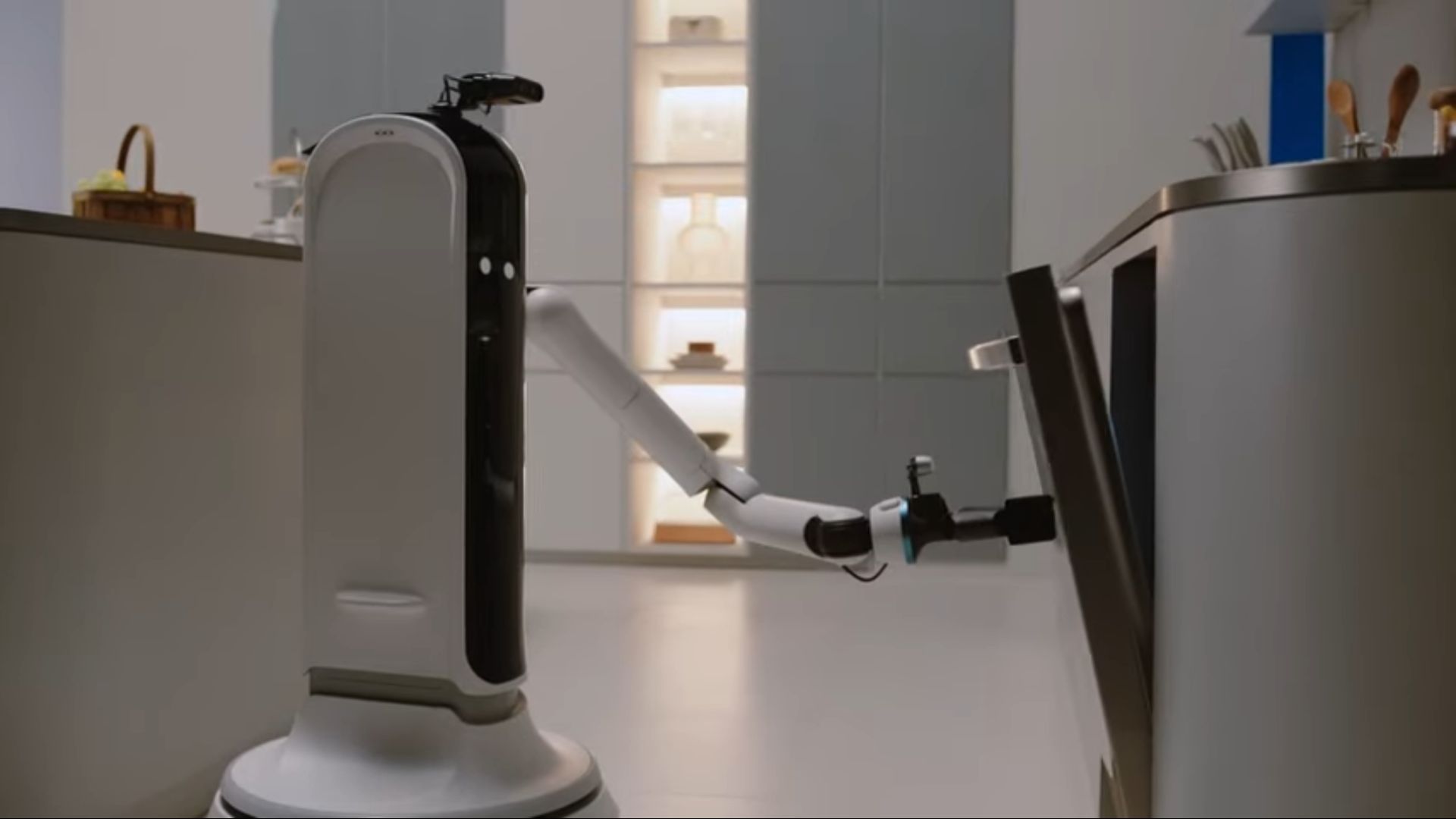- AIdeations
- Posts
- Elon Musk Declares War on OpenAI: The Showdown Begins! 💥
Elon Musk Declares War on OpenAI: The Showdown Begins! 💥
Find out how Elon's new AI venture plans to take on ChatGPT, plus AI's massive impact on music, and the latest groundbreaking AI tech news!
What's up ya'll, this is AIdeations. The go-to newsletter that takes AI and tech news that slaps and turns it into a no-bs, fun email for you each day.
If you've got suggestions on how I can improve the newsletter, feel free to reach out at [email protected]
TL;DR
AI's impact on the music industry brings opportunities and challenges, including copyright issues and authorship debates. Elon Musk is launching a new AI start-up, X.AI, to compete with OpenAI's ChatGPT, with plans to create an "everything app" under the brand "X". Don't forget the human element remains crucial in music creation. News headlines include "Wolverine" fixing Python bugs, Meta's AI doodle animations, AI in the workplace, Adobe's AI-powered text-based video editing, and Samsung's EX1 human assistant robot.
I am an AI, and this summary is automatic. This TL;DR is approximately 84.68% shorter than the post I'm replying to.
Here's what we've got in store for you today:
🎵 The Music Industry is Changing..... Again
♟️ Musk is Launching X AI To Compete With Open AI
📰 News From The Front Lines
🎥 Video Of The Day
🛠 Tools Of The Day
Navigating the AI Revolution in the Music Industry: Opportunities and Challenges
AI is transforming various industries, and the music sector is no exception. With AI-generated music gaining popularity and applications like BandLab and Moises empowering creators with AI tools, the music industry is at the cusp of a significant shift. However, this transformation brings both opportunities and challenges, including copyright concerns, unauthorized use of artists' works, and questions about authorship and ownership.
Last week, an AI song went viral. It's a completely original song generated using available AI tools and capabilities with one catch.... The song sound like Drake and The Weeknd teamed up for a collab. However, as I displayed over a month or so ago, anyone, can create any song, impersonating literally anyone. This is essentially deep fake music and it's here to stay no matter what UMG or other artists and conglomerates have to say about it. The only real thing that will happen in my personal opinion is that there will be lawsuits over name and likeness. This will only make the creators of this music come up with original names for their AI-generated music and artists. Check out the viral song created by "ghostwriter" below:
AI's Impact on Music Creation:
AI has the potential to revolutionize music by generating unique sounds, melodies, and even entire songs. This technology can blend different genres and cultures, giving birth to innovative musical styles in a fraction of the time it takes humans. AI-powered music apps like BandLab and Moises are already witnessing rapid growth, indicating that the creative possibilities offered by AI are catching fire.
Concerns Over Unauthorized Use and Copyright Infringement:
As AI-generated music gains traction, major players like Universal Music Group (UMG) are raising concerns over the unauthorized use of their artists' works. UMG has requested streaming platforms like Spotify and Apple Music to block AI from accessing copyrighted content, as certain AI systems may have been trained on copyrighted material without proper consent or compensation. This has led to UMG sending takedown requests to protect the rights of its artists and itself.
I feel like UMG and others have short-term memory here. The cat is out of the bag and the genie has long left its bottle. Much like the Napster revolution, there is no going back. Welcome to the democratization of creation. When anyone, even with no real talent, can create original music that sounds like their favorite artists in minutes. Just like how Sci-Fi novels were being produced at volumes never seen before when ChatGPT launched, so will go the way of music, movies, and much more.This is great news for consumers, but not so much for major conglomerates. There is a nasty flip side to this though. Now that productivity has increased significantly using AI tools, we need fewer people to fill a lot of job roles. When one person is now twice as productive as someone who is not using AI, it will become commonplace for one person to handle the majority of work. After all, labor is the biggest expense on a P&L.
The Legal and Ethical Debate:
The rise of AI in music creation has sparked debates about authorship, ownership, and intellectual property rights. Lawmakers are beginning to contemplate new rules around creative machines, with major discussions focusing on compensating creators of original material, applying "fair use" or "fair learning" standards to AI, and determining who owns the output of generative AI.
We could pontificate on this issue for eons. Lawyers and major corporations who will be affected by these things will throw millions of dollars into fighting this issue but I personally don't think they will win. If they do, it won't matter much because the gig is already up. This technology is advancing much faster than our laws can keep up and it's not going to slow down. I personally love the idea of living in a world where I can create virtually anything just by being able to describe what I want.
The Human Element:
While AI has the potential to compose music and generate innovative sounds, it may never replace the emotional aspect of human creativity. Great art and music are often born from human emotions like love, pain, suffering, and joy, which AI lacks. Organizations like the Human Artistry Campaign, which includes BMI, the Recording Industry Association of America, and the Songwriters Guild of America, are advocating for the recognition of human artistry's irreplaceable role in culture and the arts. Humans will still write great meaningful and heartfelt songs. That will not change. We just won't know the difference between the two, and that's actually not a big issue for me personally and I'm someone who has actually worked in the music industry.
Conclusion:
As AI continues to make inroads into the music industry, it is crucial to strike a balance between embracing its creative potential and addressing the legal, ethical, and emotional aspects surrounding its use. Ensuring that AI is deployed in ways that respect creators' and performers' rights and adhere to relevant laws will be key to navigating the challenges and opportunities presented by this technological revolution. I believe the balance is restricting anyone from creating anything that too closely resembles another artist's image and likeness. AI-generated voices that sound like any artist imaginable will not be affected. But making it sound like an artist and not differentiating that creation with a unique name and image will cause issues. This is just my opinion and we will have to wait and see what happens in court.
Elon Musk Launches New AI Start-up to Compete with OpenAI's ChatGPT

Elon Musk is currently in the process of developing a new artificial intelligence start-up, which he plans to use to compete with OpenAI, the company behind ChatGPT. The billionaire entrepreneur has been busy assembling a team of AI researchers and engineers, and he is currently in talks with various investors in SpaceX and Tesla who are interested in investing in his new venture.
Musk recently incorporated a company called X.AI, and he has changed the name of Twitter to X Corp in company filings. He is working on creating an "everything app" under the brand "X". For this new project, he has secured thousands of high-powered GPU processors from Nvidia, which are essential for building large language models that can produce human-like writing and realistic imagery, similar to the technology that powers ChatGPT.
Despite the fact that Musk recently led a letter signed by numerous tech figures calling for a pause on the development of GPT-style models over safety concerns, he is moving quickly with his new AI venture. His potential entry into the generative AI market will add yet another venture to his diverse portfolio of responsibilities and investments, which includes running Twitter and Tesla, founding SpaceX, his $137bn rocket maker, Neuralink, a neurotechnology researcher, and The Boring Company, a tunneling start-up.
Musk has been recruiting engineers from top AI labs, including DeepMind, and he has brought on a former DeepMind employee named Igor Babuschkin, along with roughly half a dozen other engineers. The new company would allow Musk to take on OpenAI, the Microsoft-backed group that he co-founded in 2015. However, he left the board three years later amid clashes with its management, including over attitudes towards AI safety, according to two people who were involved in OpenAI at the time.
Despite the crowded and well-financed market, a Musk-backed generative AI venture would be able to make a significant impact. Tech giants such as Microsoft, Google, and Amazon are all competing in this space, as are start-ups such as Anthropic, Adept, and StabilityAI, which have together raised billions of dollars in recent months.
Musk's new AI venture is separate from his other companies, although it could use Twitter content as data to train its language model and tap Tesla for computing resources. His exact position within the corporate structure remains unclear, but he has recently moved Twitter Inc into a new holding company, X Corp.
Musk is enthusiastic about Tesla's homegrown supercomputer, Dojo, which is used to train the company's Autopilot self-driving system. He has hinted that Dojo could be opened up to other companies as a service, similar to how Amazon rents out its vast server infrastructure as AWS.
SOURCE:
📰 News From The Front Lines: 📰
📼 Video Of The Day 📼
🛠️ Tools Of The Day 🛠️
Thanks for tuning in to our daily newsletter. We hope you found our tips and strategies for AI tools helpful.
Your referrals mean the world to us. See you tomorrow!
Interested in Advertising on AIdeations?
Fill out this survey and we will get back to you soon.
DISCLAIMER: None of this is financial advice. This newsletter is strictly educational and is not investment advice or a solicitation to buy or sell any assets or to make any financial decisions. Please be careful and do your own research.










